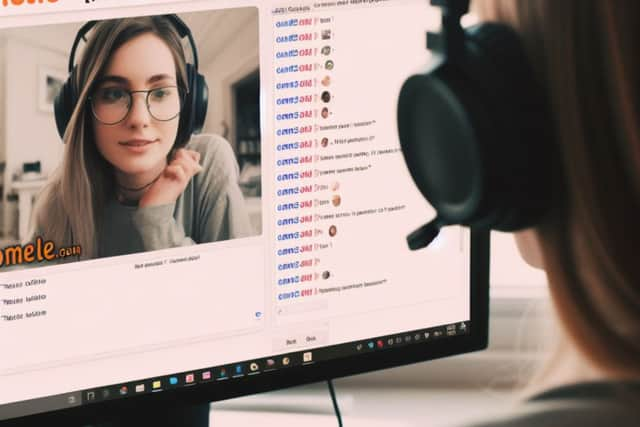Omegle shut down: has random chat website been shut down, why was app closed - what happened to it?
and live on Freeview channel 276
Online video chatting platform Omegle has been abruptly shut down by its founder, more than 14 years after the popular site first went online.
Leif K-Brooks, who started the website at just 18-years old, announced on 8 November that a decision had been made to shut down Omegle, citing the challenges linked to the operation of the site as the primary reason for its closure.
Advertisement
Hide AdAdvertisement
Hide Ad“Virtually every tool can be used for good or for evil, and that is especially true of communication tools, due to their innate flexibility,” K-Brooks wrote. “The telephone can be used to wish your grandmother ‘happy birthday’, but it can also be used to call in a bomb threat.
"There can be no honest accounting of Omegle without acknowledging that some people misused it, including to commit unspeakably heinous crimes," he added.
But just why exactly was the site shut down, and was it ever safe to use in the first place? Here is everything you need to know.
What is Omegle?
Omegle was a popular online chat platform that was launched in 2009 by Leif K-Brooks, an 18-year-old entrepreneur, which quickly gained attention for its unique concept of connecting users with random strangers for one-on-one chat sessions.
Advertisement
Hide AdAdvertisement
Hide AdOmegle's appeal came from its simplicity and the excitement of not knowing who you'll be paired with next, and the website operated without the need for user registration, allowing individuals to dive into conversations without providing personal information.


This anonymity was a double-edged sword for Omegle, contributing to both its widespread popularity and some of the challenges it faced.
Initially, 13-year-olds were permitted to use the site with parental or guardian consent. However, in 2022, the regulations were revised, restricting usage to individuals aged 18 and above.
Omegle offered two main modes of communication: text chat and video chat. In the text chat mode, users exchanged messages with their randomly assigned partners. The video chat option took the interaction to a more personal level by enabling users to see and hear each other in real-time.
Was it safe?
Advertisement
Hide AdAdvertisement
Hide AdThere were potential positives to Omegle. The element of randomness and surprise was a key aspect of its appeal, and users never knew who they would encounter next – it could be someone from a different country, with diverse interests and perspectives.
But while Omegle sold itself on its ability to provide a platform for casual conversations and the potential to make new friends, it was also criticised for fostering inappropriate and offensive behaviour.
The lack of user registration and the ability to stay anonymous made it challenging to enforce strict guidelines and monitor user conduct effectively. As a result, some users exploited the platform to engage in explicit or offensive conversations.
To address these concerns, Omegle implemented a "monitored" video chat option, which involved human moderators keeping an eye on the conversations in an attempt to create a safer environment and filter out inappropriate content.
Advertisement
Hide AdAdvertisement
Hide AdHowever, the effectiveness of this monitoring system was a subject of debate, as the sheer volume of conversations on the platform made it challenging to address every instance of misconduct.
Despite these challenges, Omegle remained a popular destination for those seeking spontaneous and unpredictable interactions for over 14 years. Amidst the Covid-19 lockdowns, the platform experienced a surge in popularity, especially among teenagers.
Why was it closed down?
On 8 November 2023, founder K-Brooks made the announcement that they had decided to abruptly close Omegle down, citing difficulties associated with operating the site as the reason for its demise.
The challenges highlighted in a statement encompassed issues such as the online exploitation of children and attacks on communication services, but K-Brooks asserted that his choice was influenced by "the misuse of the internet".
Advertisement
Hide AdAdvertisement
Hide AdHowever, Wired reported that Omegle was shut down as part of a legal mediation with a female user who sued the company, claiming its defective and negligent design enabled her to be sexually abused through the site.
Omegle’s service - which had a long, problematic history of sexual abuse issues - was shut down just a week after it settled a court case with a plaintiff identified as A.M.
Her lawsuit, filed in 2021, alleged that she met a man in his thirties on Omegle who forced her to take naked photos and videos over a three-year period. She was just 11 when it began in 2014.
Comment Guidelines
National World encourages reader discussion on our stories. User feedback, insights and back-and-forth exchanges add a rich layer of context to reporting. Please review our Community Guidelines before commenting.
